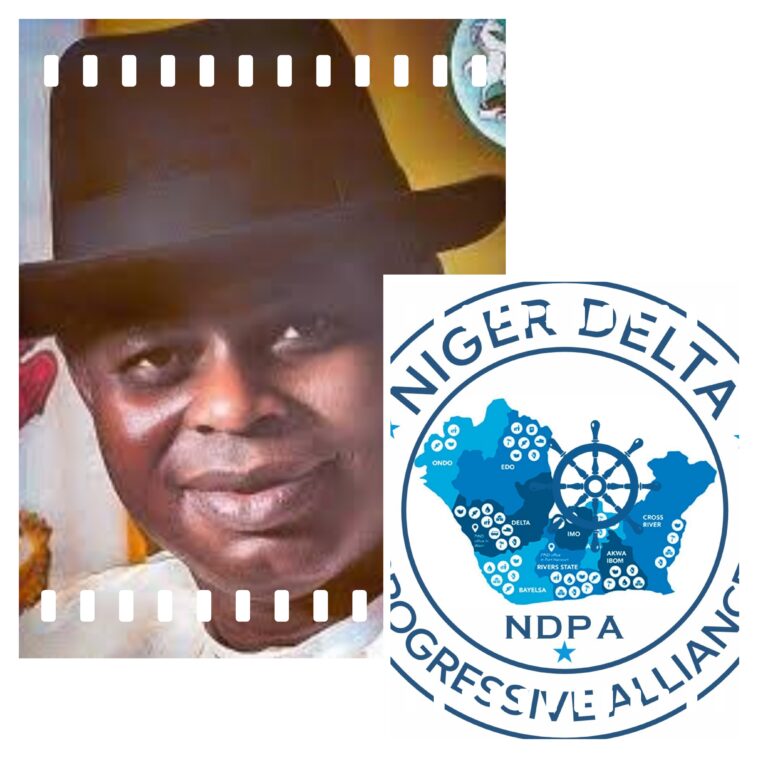Across Africa, in the pantheon of Pan-African heroes, the story of liberation is never written in ink but in courage. Nelson Mandela’s steadfast walk, Kwame Nkrumah’s clarion call for independence, Patrice Lumumba’s fearless truth in the Congo, Aline Sitoé Diatta’s resistance in Senegal; there stand sons and daughters who shape not just their borderlines but the soul of their people. So does the struggle of the Niger Delta remember Diepreye Solomon Peter Alamieyeseigha: more than a governor, he was an idea incarnate, a Pan-Niger Deltan, a proud voice of the Ijaw Nation, and a man who turned the pain of his people into a movement.
Ten years have passed since his voice fell silent, yet the creeks still echo his convictions. Alamieyeseigha arrived on the stage of governance not as a politician in the usual sense. He was Governor-General, not merely because the title suited him, but because he earned it in sacrifice, in vision, in love for the creek-born child who dreams. He was a storm against silence, and a shield for the oppressed.
As the Niger Delta Progressive Alliance (NDPA) reflects, “Alamieyeseigha may have spoken the tongue of the Ijaw, but the soul of his message was multilingual. Ibibio heard him. Efik heard him. Urhobo, Itsekiri, and Ogoni heard him. He spoke the language of justice, dignity, and self-determination, and everyone even beyond Niger Delta, understood.” From Niger Delta’s creeks, he lifted the shout of resource control, of equity, of an Ijaw people who would no longer wait for crumbs. And under his watch, Bayelsa found its pulse. The Niger Delta University rose as a lighthouse of learning. Roads crawled out of the mangroves. Youth who hungered for purpose were empowered. And he awakened culture where shame had taken root.
For the NDPA, his life remains a compass for a region at a crossroads. “The time for sentimental remembrance is over,” the Alliance declared. “We must now embrace an ideological rebirth, one that shifts our energy from protest to purpose, from grievance to governance, from rhetoric to results.”
With Alamieyeseigha, unity never frayed under self-interest. As leader, he never forgot that true power is not the paltry sum of offices, but integrity in the storm and compassion in scarcity. The words of NDPA echo not in the silence of what was lost, but in the cadence of what can still be forged: a Niger Delta united by purpose and vision.
If the Niger Delta is to build its future on bedrock and not on shifting sand, we must reclaim Alamieyeseigha’s ideals: resource justice, collective purpose, courage over ease. Youth must rise not just with demands, but with strategy; traditional rulers not just bearing heritage, but catalysing renewal; political actors not just seeking votes, but building pathways of schools, roads, and culture that endure.
“Let remembrance not be a flower laid at his grave but a seed planted for the future. Let the creeks sing again with enterprise, education, and equity. Let this anniversary be the blueprint for the next chapter of our destiny.” Amb. Nse of NDPA urged. Remembrance should neither drown in nostalgia, nor be an echo of what was, but a drumbeat for what must be. The silence today is louder than Delta’s waters and his voice may have remained his alone these 10 years; retired, sacred in its silence, but the future is birthing voices of equal heart and unshakable resolve. They will walk the shores of our creeks and carry the title of Governor-General of the Ijaw Nation.
NDPA’s confidence lies in the truth that the Governor-General of the Ijaw Nation may rest beneath the soil he served, yet his ideals still rise with the tide. Every ripple on the creek carries his name. and history does not forget such men. It simply waits for others brave enough to continue their paragraph. So, may his legacy guide us. May his footsteps illuminate every creek, every mangrove, every child who looks past the horizon and sees a Niger Delta free, unified, just.



